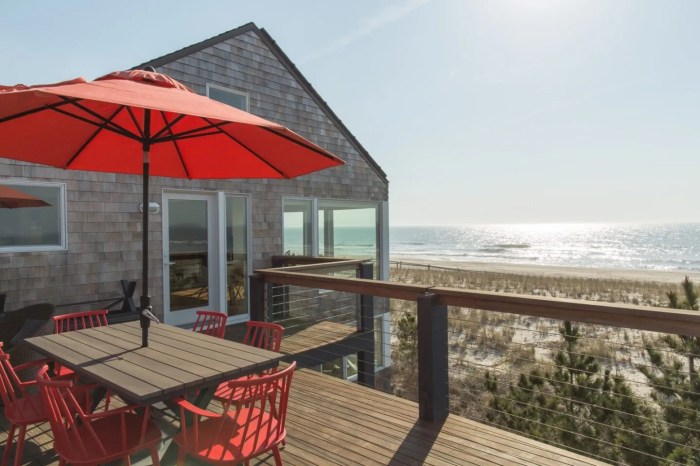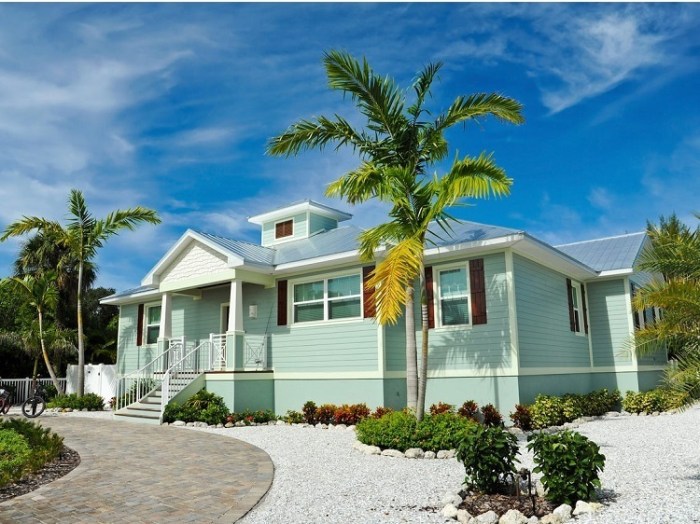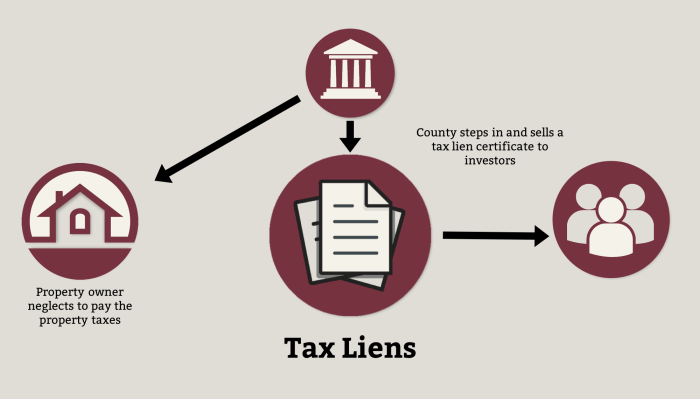Investing in Resort Properties A Comprehensive Guide

Investing in resort properties can be a lucrative venture, offering the potential for both financial returns and personal enjoyment. From beachfront condos to luxurious villas, the world of resort investments is diverse, catering to a wide range of budgets and preferences. But before diving in, it’s crucial to understand the intricacies of this market, including the various property types, potential benefits, and associated risks.
This comprehensive guide explores the fundamentals of resort property investment, delving into key factors influencing value, popular investment strategies, and effective management techniques. We’ll also examine current market trends and provide insights into the future outlook for this dynamic sector.
Resort Property Investment Basics
Investing in resort properties can be an attractive option for those seeking passive income and potential capital appreciation. It involves purchasing a property in a vacation destination, aiming to generate rental income or long-term appreciation. This guide explores the fundamentals of resort property investment, including the various types, benefits, risks, and investment strategies.
Types of Resort Properties
The types of resort properties available for investment are diverse, catering to different budgets and investment goals.
- Condominiums (Condos): These are individual units within a larger resort complex, offering amenities and services. Condos provide flexibility and potential for rental income, but ownership is limited to the specific unit.
- Vacation Homes: These are standalone properties, typically detached houses or villas, providing greater privacy and space compared to condos. Vacation homes can be rented out for higher returns but may require more maintenance and management.
- Timeshares: These involve purchasing the right to use a property for a specific period each year. Timeshares offer affordable access to luxury resorts but have limited flexibility and potential resale value.
- Fractional Ownership: This allows investors to own a portion of a luxury property, providing access for a specific period each year. Fractional ownership offers higher-end amenities and potentially greater returns, but the initial investment is substantial.
Benefits of Investing in Resort Properties
Investing in resort properties presents various advantages, attracting individuals seeking diversification and passive income.
- Rental Income: Resort properties can generate consistent rental income, providing a steady stream of cash flow. The demand for vacation rentals is often high, especially in popular tourist destinations.
- Potential for Capital Appreciation: Resort properties can appreciate in value over time, particularly in areas experiencing growth in tourism and real estate markets. Factors such as location, amenities, and property condition influence appreciation.
- Tax Advantages: In some jurisdictions, resort property investments may qualify for tax deductions, such as depreciation or mortgage interest, potentially reducing overall tax liability.
- Personal Use: Owning a resort property provides the opportunity for personal use, allowing investors to enjoy vacations in their investment property. This offers a tangible benefit beyond financial returns.
Risks of Investing in Resort Properties
While resort property investments offer potential benefits, certain risks are associated with this investment strategy.
- Market Volatility: The resort property market can be volatile, influenced by economic conditions, tourism trends, and local regulations. Fluctuations in demand and supply can impact rental income and property values.
- Operational Costs: Maintaining and managing a resort property involves significant operational costs, including property taxes, insurance, utilities, and maintenance. These costs can eat into rental income and affect profitability.
- Seasonality: Rental demand in resort areas is often seasonal, with peak periods generating higher income and off-season periods experiencing lower occupancy. Managing seasonality requires careful planning and pricing strategies.
- Competition: The resort property market is competitive, with numerous properties vying for rental bookings. Attracting renters requires effective marketing, competitive pricing, and high-quality amenities.
- Property Management: Managing a resort property can be time-consuming and demanding, requiring attention to bookings, maintenance, and guest relations. Hiring a professional property manager can alleviate this burden but comes with additional costs.
Comparison of Resort Property Investment Strategies
Different resort property investment strategies have varying pros and cons, requiring careful consideration based on individual investment goals and risk tolerance. The following table summarizes key aspects of common strategies:
| Strategy | Pros | Cons |
|---|---|---|
| Condos | Lower initial investment, access to amenities, potential for rental income. | Limited ownership, shared amenities, potential for noise and crowds. |
| Vacation Homes | Greater privacy and space, potential for higher rental income, ownership of the entire property. | Higher initial investment, higher maintenance costs, greater responsibility for management. |
| Timeshares | Affordable access to luxury resorts, fixed ownership period, predictable expenses. | Limited flexibility, potential for resale challenges, restricted usage rights. |
| Fractional Ownership | High-end amenities, potential for greater returns, access to luxury properties. | High initial investment, limited ownership rights, potentially complex management structures. |
Factors Influencing Resort Property Value
The value of a resort property is influenced by a variety of factors, making it essential to understand these factors to make informed investment decisions. These factors can be broadly categorized into location, amenities, and market demand, all of which play a significant role in determining the overall value of a resort property.
Location
The location of a resort property is a crucial factor influencing its value. A prime location often translates to higher demand, increased rental income potential, and a greater appreciation in value over time. Here are some specific aspects of location that significantly impact resort property value:
- Proximity to Attractions: Resort properties located near popular tourist attractions, such as beaches, theme parks, national parks, or historical sites, are highly sought after by travelers. This proximity provides easy access to entertainment, activities, and natural beauty, enhancing the desirability of the property.
- Accessibility: Convenient access to transportation hubs, such as airports, train stations, and major highways, is essential for attracting visitors. A resort property with good accessibility is more appealing to travelers, especially those who prefer hassle-free travel.
- Climate and Weather: Resorts located in regions with favorable weather conditions, such as sunny beaches, snow-capped mountains, or lush tropical landscapes, tend to be more popular and command higher prices. Pleasant weather attracts tourists throughout the year, ensuring a steady stream of visitors and consistent rental income.
- Local Economy: A strong local economy with a thriving tourism industry can positively impact the value of resort properties. A robust economy indicates a healthy demand for tourism-related services, including accommodation, which translates to higher occupancy rates and rental income for resort owners.
Amenities and Facilities
The amenities and facilities offered by a resort property significantly influence its appeal to potential buyers and renters. A well-equipped resort with a wide range of amenities can command higher prices and attract a broader range of guests. Here are some key amenities and facilities that contribute to resort property value:
- Swimming Pools: A swimming pool is a standard amenity in most resorts, providing a recreational space for guests to relax and enjoy. Larger, more elaborate pools, such as infinity pools or pools with water slides, can enhance the appeal and value of a resort property.
- Spa and Wellness Centers: Resorts with spas and wellness centers offer guests opportunities for relaxation, rejuvenation, and pampering. These facilities can attract a specific segment of travelers seeking wellness experiences and contribute to higher rental rates.
- Fitness Centers: Fitness centers are becoming increasingly popular in resorts, catering to health-conscious travelers who want to maintain their fitness routines while on vacation. Well-equipped fitness centers with modern equipment can enhance the value of a resort property.
- Restaurants and Bars: On-site restaurants and bars provide convenience and dining options for guests. Upscale restaurants and bars with unique menus and ambiance can attract a wider range of guests and increase the overall appeal of the resort.
- Concierge Services: Concierge services offer guests personalized assistance with travel arrangements, bookings, and local recommendations. This level of service enhances the guest experience and can contribute to higher customer satisfaction and repeat business.
Rental Income Potential, Investing in resort properties
Rental income potential is a key factor influencing the value of resort properties. Factors that affect rental income potential include:
- Seasonality: Resort properties located in destinations with distinct seasons experience fluctuations in rental income. Peak seasons, such as summer or winter holidays, typically generate higher rental rates, while off-season periods may see lower demand and lower rental income.
- Property Size and Type: The size and type of resort property affect its rental income potential. Larger properties with multiple bedrooms and bathrooms can accommodate more guests and generate higher rental income. Similarly, luxury properties with high-end amenities and features can command premium rental rates.
- Property Management: Effective property management plays a crucial role in maximizing rental income. Professional property managers can handle bookings, guest communication, maintenance, and other tasks, ensuring smooth operations and optimal occupancy rates.
- Marketing and Promotion: Effective marketing and promotion strategies are essential for attracting renters and generating bookings. Resort owners should utilize online platforms, social media, and other channels to reach potential guests and promote their properties.
- Local Regulations: Local regulations, such as zoning ordinances and short-term rental restrictions, can impact rental income potential. Resort owners need to comply with all applicable regulations to avoid penalties and ensure the smooth operation of their properties.
Resort Property Investment Strategies: Investing In Resort Properties

Choosing the right resort property investment strategy is crucial for maximizing returns and minimizing risk. Your strategy should align with your financial goals, risk tolerance, and investment timeline.
Comparing Resort Property Investment Strategies
Different investment strategies cater to various investor profiles and objectives. Here’s a comparison of common resort property investment approaches:
- Buy-and-Hold: This strategy involves purchasing a resort property and holding it for the long term, aiming to benefit from appreciation in value and rental income. It’s suitable for investors seeking passive income and long-term growth, with a lower risk tolerance.
- Short-Term Rentals: This strategy involves renting out a resort property for short periods, typically to tourists or vacationers. It can generate higher rental income than long-term rentals but requires more active management and may face regulatory challenges.
- Vacation Club Ownership: This involves purchasing a fractional ownership in a resort property, allowing access for a specific period each year. It offers flexibility and potential cost savings but may have limited resale value and potential for conflicts with other owners.
- Resort Development: This strategy involves investing in the development of a new resort property, potentially offering higher returns but also carrying higher risks and requiring significant capital investment.
Selecting the Right Resort Property Investment
Choosing the right investment strategy depends on your individual goals and risk tolerance:
- Investment Goals: Define your primary objective, whether it’s generating passive income, capital appreciation, or a combination of both. Consider your desired return on investment (ROI) and your investment timeline.
- Risk Tolerance: Assess your comfort level with potential losses and market fluctuations. A higher risk tolerance might lead you towards short-term rentals or resort development, while a lower risk tolerance might favor buy-and-hold strategies.
- Time Commitment: Evaluate your available time for managing the property. Short-term rentals require more active involvement, while buy-and-hold strategies offer more passive income generation.
- Financial Resources: Consider your available capital, including down payment, closing costs, and ongoing expenses. Resort development requires significant capital investment, while vacation club ownership offers a lower entry point.
Successful Resort Property Investment Strategies
Here are some examples of successful resort property investment strategies:
- Investing in High-Demand Destinations: Properties in popular tourist destinations with high demand and limited supply often experience stronger rental income and appreciation potential. For example, investing in a resort property in a beach town with limited available accommodations during peak season could lead to higher returns.
- Targeting Niche Markets: Identifying and catering to specific niche markets, such as families, couples, or adventure enthusiasts, can increase occupancy rates and rental income. For example, a resort property offering family-friendly amenities, like a children’s pool and play area, could attract families seeking a comfortable and enjoyable vacation experience.
- Renovating and Upgrading Properties: Improving the property’s aesthetics, amenities, and functionality can attract higher-paying tenants and increase rental income. For example, renovating a dated resort property with modern furnishings, updated appliances, and energy-efficient features can make it more appealing to discerning travelers.
Conducting Due Diligence Before Investing
Thorough due diligence is crucial before investing in a resort property. Follow these steps:
- Research the Destination: Analyze the local economy, tourism trends, and future development plans. Consider factors like infrastructure, transportation, and access to attractions. For example, a resort property located near a major airport or highway might be more attractive to tourists.
- Assess the Property: Evaluate the condition of the property, including its structural integrity, amenities, and maintenance history. Consider potential renovation costs and ongoing maintenance expenses.
- Analyze Financial Statements: Review the property’s financial records, including income statements, balance sheets, and cash flow statements. This will help you assess the property’s profitability and identify any potential red flags.
- Review Legal Documents: Examine the property’s title, deed, and any relevant legal agreements. Ensure the property is free of liens or encumbrances. Consult with a real estate attorney to ensure the transaction is legal and protects your interests.
- Evaluate Market Conditions: Research the local real estate market, including supply and demand, average rental rates, and property values. Consider factors like seasonality, competition, and potential for future growth.
Managing Resort Property Investments

Managing resort property investments can be both rewarding and challenging. You’ll need to navigate the intricacies of rental operations, maintenance, and marketing while ensuring profitability. However, with careful planning and effective strategies, you can maximize your returns and enjoy the benefits of owning a resort property.
Challenges and Opportunities
Managing a resort property presents a unique set of challenges and opportunities.
* Challenges:
* Seasonal Fluctuations: Demand for resort rentals often varies significantly throughout the year, impacting occupancy rates and revenue.
* Maintenance Costs: Resort properties typically require more frequent and extensive maintenance than residential properties, due to heavy usage and exposure to the elements.
* Competition: The resort rental market is often competitive, requiring effective marketing and pricing strategies to attract guests.
* Guest Management: Dealing with guest inquiries, bookings, check-ins, and potential issues can be time-consuming and demanding.
* Opportunities:
* High Rental Income Potential: Resort properties can generate substantial rental income, especially in popular destinations.
* Tax Advantages: Depending on your location and investment structure, you may be eligible for tax benefits associated with owning rental property.
* Appreciation Potential: Resort properties can appreciate in value over time, especially in desirable locations with strong tourism demand.
* Personal Use: As the owner, you can enjoy the benefits of using the property for your own vacations.
Essential Tasks for Managing Resort Property Rentals
Effective management of resort property rentals involves a series of essential tasks that ensure smooth operations and guest satisfaction.
* Marketing and Booking:
* Establish a strong online presence: Create a professional website and list your property on popular rental platforms like Airbnb, VRBO, and Booking.com.
* Develop attractive marketing materials: Showcase the unique features and amenities of your property through high-quality photos and compelling descriptions.
* Offer competitive pricing: Research market rates and set competitive prices to attract guests while maximizing your revenue.
* Manage bookings efficiently: Use a property management system to track bookings, communicate with guests, and streamline the reservation process.
* Guest Communication and Check-in/Check-out:
* Respond promptly to inquiries: Answer guest questions and address concerns in a timely and professional manner.
* Provide clear instructions and information: Share details about check-in and check-out procedures, property rules, and local amenities.
* Offer a smooth check-in experience: Ensure a seamless and welcoming arrival for your guests.
* Handle check-out efficiently: Ensure guests have a smooth departure and collect any outstanding payments.
* Maintenance and Cleaning:
* Develop a proactive maintenance schedule: Regularly inspect the property and address any issues promptly to prevent major repairs.
* Maintain a high standard of cleanliness: Ensure the property is clean and well-maintained for each new guest.
* Coordinate with reliable service providers: Establish relationships with trusted cleaning crews, maintenance contractors, and other service providers.
Strategies for Maximizing Rental Income
Maximizing rental income from a resort property requires a strategic approach that considers factors like pricing, occupancy, and operational efficiency.
* Pricing Strategies:
* Dynamic Pricing: Adjust rental rates based on seasonality, demand, and special events to optimize revenue.
* Value-Added Pricing: Offer additional amenities or services, such as complimentary breakfast, spa treatments, or activity packages, to justify higher prices.
* Competitive Analysis: Regularly research rental rates in your area to ensure your prices are competitive and attractive to guests.
* Occupancy Management:
* Effective Marketing: Utilize a multi-channel marketing approach to reach a wider audience and attract more bookings.
* Seasonal Promotions: Offer discounts or special packages during off-peak seasons to encourage bookings and increase occupancy.
* Guest Reviews: Encourage guests to leave positive reviews on rental platforms, which can boost visibility and attract new bookings.
* Operational Efficiency:
* Streamline Operations: Use property management software to automate tasks, reduce administrative burden, and improve efficiency.
* Minimize Vacancy Periods: Offer shorter-term rentals or last-minute deals to fill any gaps in occupancy.
* Reduce Costs: Negotiate favorable rates with service providers, optimize energy consumption, and implement cost-saving measures.
Property Management Options
There are various options for managing resort property investments, each with its own advantages and disadvantages.
| Management Option | Advantages | Disadvantages |
|—|—|—|
| Self-Management | Full Control: You have complete control over all aspects of the property. Cost-Effective: You save on management fees. | Time-Consuming: Managing all tasks can be demanding. Lack of Expertise: You may lack experience in certain areas like marketing or guest services. |
| Professional Property Management Company | Expertise: Experienced managers handle all aspects of operations. Time Savings: You free up your time to focus on other matters. | Management Fees: You pay a percentage of rental income. Less Control: You may have limited control over some decisions. |
| Hybrid Approach | Combines the best of both worlds: You can handle some tasks while outsourcing others to a professional company. | Requires careful coordination: You need to clearly define responsibilities and ensure smooth collaboration. |
Resort Property Market Trends

The resort property market is dynamic and influenced by a multitude of factors, including economic conditions, travel trends, and technological advancements. Understanding these trends is crucial for investors to make informed decisions and navigate the evolving landscape of resort property investments.
Economic Conditions Impact on Resort Property Values
Economic conditions significantly influence resort property values. When the economy is strong, people have more disposable income, leading to increased travel and demand for resort properties. Conversely, during economic downturns, travel budgets are often reduced, impacting resort property demand and values.
- Recessions: During recessions, unemployment rises, and consumer confidence decreases, leading to a decline in travel spending. This can result in lower occupancy rates and reduced rental income for resort property owners, impacting property values.
- Interest Rates: Interest rates play a crucial role in real estate investment. Higher interest rates make borrowing more expensive, discouraging investment in resort properties. Lower interest rates make borrowing more affordable, potentially boosting demand and property values.
- Inflation: High inflation erodes purchasing power, impacting travel budgets and potentially reducing demand for resort properties. Conversely, controlled inflation can stimulate economic growth and boost travel demand.
Emerging Trends Influencing Future Resort Property Investments
The resort property market is constantly evolving, driven by emerging trends that shape investor strategies and future outlook.
- Remote Work and Digital Nomads: The rise of remote work and digital nomads has increased demand for resort properties offering high-speed internet and co-working spaces. Investors are recognizing the potential of catering to this growing segment of travelers seeking longer-term stays in desirable locations.
- Sustainable Tourism: Increasing environmental awareness is driving demand for sustainable resort properties. Investors are focusing on eco-friendly practices, energy efficiency, and responsible tourism initiatives to attract environmentally conscious travelers.
- Wellness and Retreats: The growing emphasis on wellness and self-care has led to increased demand for resort properties offering spa services, fitness facilities, and wellness programs. Investors are recognizing the potential of catering to this trend by developing properties that prioritize health and well-being.
- Experiential Travel: Travelers are seeking authentic experiences and personalized travel itineraries. Investors are adapting by offering unique experiences, such as local cultural immersion, adventure activities, and curated travel packages.
Future Outlook for the Resort Property Market
The future of the resort property market is promising, with continued growth expected in specific segments.
- Demand for Luxury Properties: The demand for luxury resort properties is expected to remain strong, driven by affluent travelers seeking exclusive experiences and amenities.
- Growth in Emerging Markets: Emerging markets with growing economies and tourism infrastructure are attracting investors seeking opportunities for growth and diversification.
- Importance of Technology: Technology will continue to play a significant role in the resort property market, enhancing guest experiences, streamlining operations, and improving marketing strategies.
Investing in resort properties presents a unique opportunity to combine financial goals with the allure of vacation destinations. By carefully considering your investment objectives, conducting thorough due diligence, and adopting sound management practices, you can navigate this exciting market and potentially achieve both financial success and lasting memories.
FAQ Overview
What are the common types of resort properties available for investment?
Resort properties encompass a variety of options, including condominiums, villas, townhouses, and even entire resorts. Each type offers distinct advantages and disadvantages, so it’s essential to carefully evaluate your investment goals and preferences.
How do I determine the right investment strategy for my goals?
Your investment strategy should align with your financial goals, risk tolerance, and time horizon. Consider factors such as rental income potential, long-term appreciation, and your desired level of involvement in property management.
What are some essential steps for conducting due diligence before investing?
Due diligence is crucial to ensure a sound investment. Thoroughly research the property’s history, location, amenities, and financial performance. Consult with legal and financial professionals to review contracts and potential risks.
What are the key considerations for managing resort property rentals?
Effective property management is essential for maximizing rental income. This includes marketing, tenant screening, maintenance, and financial administration. Consider whether you’ll self-manage or utilize professional property management services.
What are some emerging trends in the resort property market?
The resort property market is constantly evolving. Keep an eye on trends like the rise of short-term rentals, the increasing demand for sustainable properties, and the growth of niche destinations.
Investing in resort properties can be a lucrative venture, offering potential for both rental income and capital appreciation. If you’re considering this type of investment, you might find insights from the jim cramer investment club helpful. While their focus is broader, their discussions on real estate can provide valuable perspectives on market trends and investment strategies, ultimately informing your decision on whether resort properties align with your investment goals.
Investing in resort properties can be a lucrative venture, offering potential for both passive income and capital appreciation. While the real estate market is a popular choice for many investors, exploring other business investment opportunities can diversify your portfolio. However, the allure of resort properties remains strong, particularly for those seeking a blend of relaxation and financial gain.
Investing in resort properties can be a lucrative venture, offering potential for both passive income and capital appreciation. However, financing such investments can sometimes be a challenge. A HELOC, or Home Equity Line of Credit, can be a valuable tool for financing resort property purchases, as it often offers lower interest rates than traditional loans. Learn more about the intricacies of heloc on investment property to make informed decisions about your resort property investment.
Investing in resort properties can be a lucrative venture, offering potential for both rental income and personal enjoyment. When considering investment options, you might want to explore the American Funds Investment Company of America , known for their diverse range of investment funds. They might offer a suitable vehicle for those seeking to diversify their portfolio and potentially include resort property investments within their holdings.
Investing in resort properties can be a lucrative venture, offering potential for both rental income and personal enjoyment. When considering such investments, it’s wise to research reputable financial advisors like those reviewed on fisher investment reviews. Their expertise can guide you through the complexities of real estate investment and help you make informed decisions for your future resort property portfolio.









